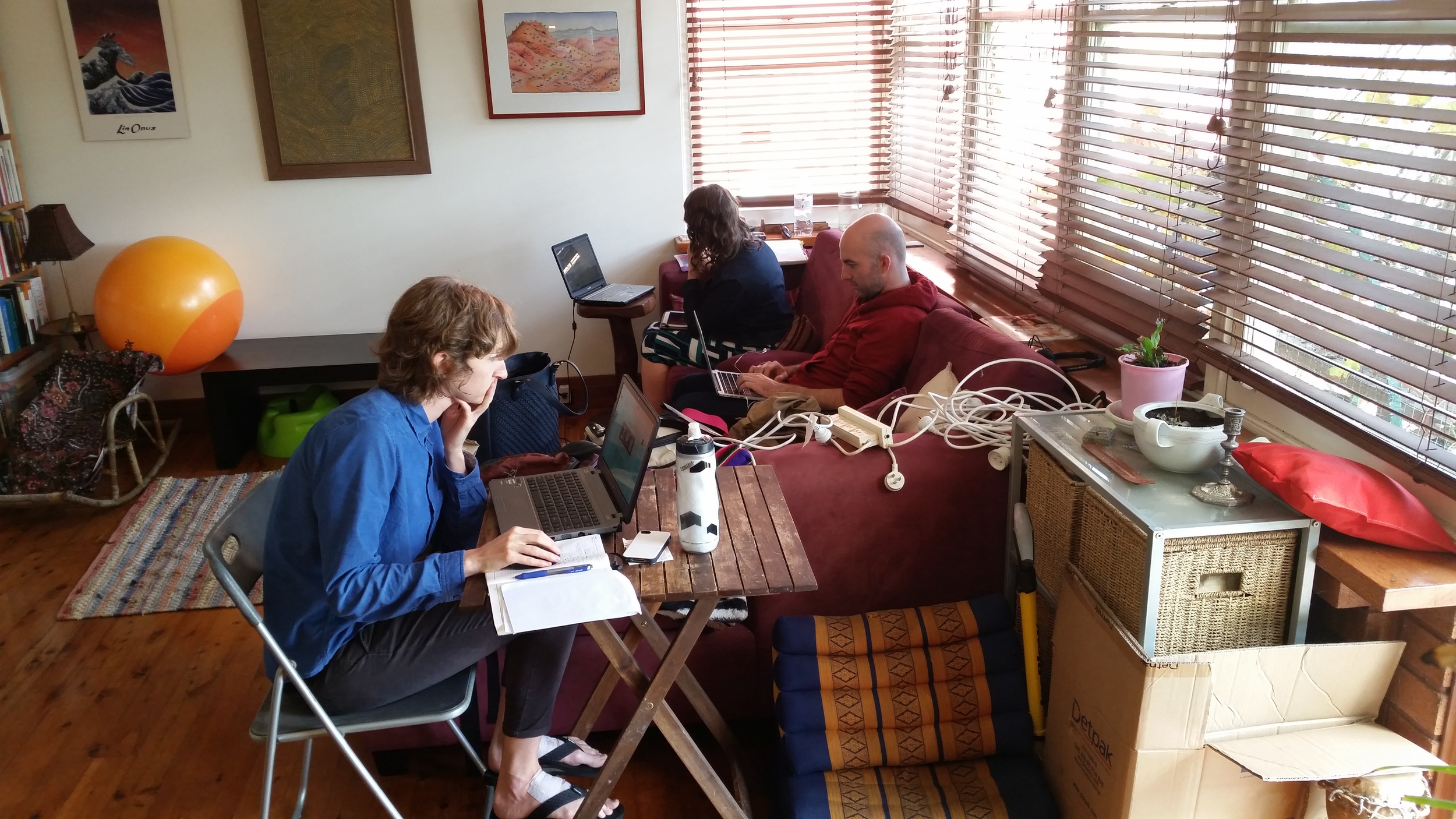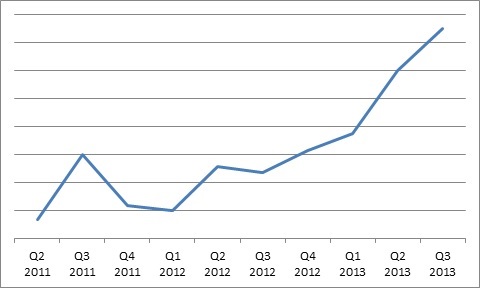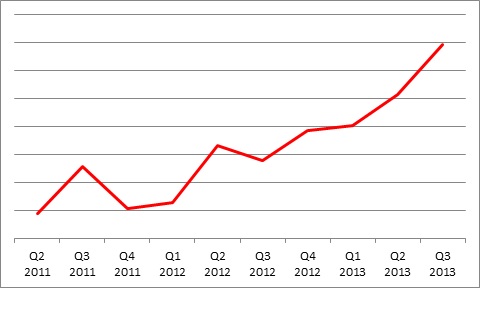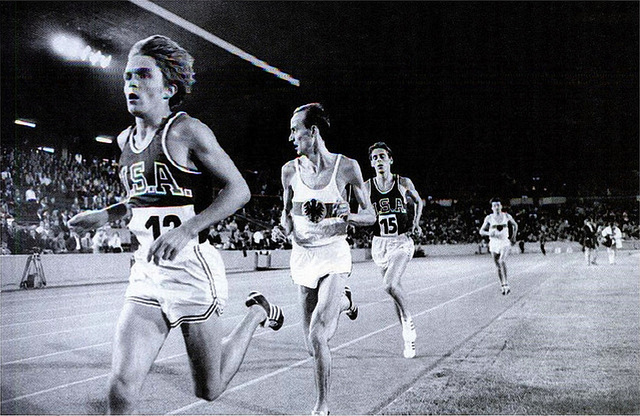 Since March I've been working from home full-time, with frequent trips to the city for meetings and events (it's only 8 minutes on the train away). There's a lot I like about this, especially being close to Bodhi and Kate and having a nice blend in my days: I'm able to play with B in the yard for ten minutes, or take him for a walk, have lunch with the family and make sure I'm here to put B to bed. But I miss the energy of having other entrepreneurs around me getting stuff done. The rapid-fire conversations, the sense of comradery and support, the greater ease in achieving focus when others around you are also focusing.
Since March I've been working from home full-time, with frequent trips to the city for meetings and events (it's only 8 minutes on the train away). There's a lot I like about this, especially being close to Bodhi and Kate and having a nice blend in my days: I'm able to play with B in the yard for ten minutes, or take him for a walk, have lunch with the family and make sure I'm here to put B to bed. But I miss the energy of having other entrepreneurs around me getting stuff done. The rapid-fire conversations, the sense of comradery and support, the greater ease in achieving focus when others around you are also focusing.
So I decided to start inviting some entrepreneurs I know to come and work with me at home every few weeks. We've done it twice and so far it's been great so I thought I'd share the model here.
Here's the email I sent:
Hello friends,
You’re getting this email because I think you’re great and I want to invite you to something new and different which I’m kinda excited about.
You’ve probably heard of Jelly, a day when people come together to co-work, often at people’s houses. Well I want to do that, basically, but with a twist I’ll get to in a bit.
Since Bodhi’s birth I’ve mostly been working from home and since we had to move out of our subsidised StartSomeGood office in the city a couple of weeks ago I’ve been working from here basically full-time. This has lots of advantages but I miss having awesome people around me and the focused and creative energy produced when everyone is getting shit done.
So I want to invite you over to work with Kate (who is also working on a new business) and I periodically. We’re thinking every second Thursday if there’s interest.
Everyone getting this email is a) an entrepreneur and b) someone I’d be happy to have in my house. So it’s a select group! You’re all people I want to learn from and collaborate with.
Our house is very easy to get to being only two blocks away from Waverton station, which is eight minutes from Wynyard Station. We have a lovely open and light-filled back living room/kitchen where we can work and a back patio and yard with a fantastic view down the harbour and to the blue mountains in the distance where we can also work weather-permitting.
Thursday Bodhi is at daycare, so it’s a day Kate and I both aim to get a lot of work done and is a good day to have people around between 9ish and 3ish.
So, to the twist.
You may have heard of a productively method called Pomodoro. For those that haven’t it’s very simple. It basically divides up your day into a series of “pomodori’s” or 25 minute sprints, where you pick one thing and finish it. Then you take a five minute break. Than another 25 minute sprint where you finish something. Every four of these you take a longer break.
I want to run the day strictly along these lines, with time at the start and end and a longish lunch break for general catching up and conversation, but with four pomodori sprints on either side.
So this isn’t just for people who like working in social settings, it’s for people who like working in social settings while getting heaps of stuff done.
I’m excited to try this and I think it’d be work best in a group to hold me accountable and to task. Doing it together will make it more effective and more fun. We’ll play a bit of music, enjoy the sunshine and crank out work alongside each other. I guess we’d call it Pomodoro Jelly, which sounds like a very weird culinary experience but might just work as an awesome working experience.
Speaking of culinary experiences during the third small break we can order thai food which will arrive in perfect time for the long lunch break.
Here’s how the day breaks down:
9am – arrive, general catching-up, drinking coffee, etc. Please arrive by at least 930am so there’s time for hellos before we get our pomodoro on.
1000 – 1st pomodoro
1025 - break
1030 – 2nd pomodoro
1055 - break
1100 – 3rd pomodoro
1125 – break – order food
1130 – 4th pomodoro
1155 long break for lunch.
1pm – 5th pomodoro
125 – break
130 – 6th pomodoro
155 – break
2 – 7th pomodoro
225 – break
230 – 8th pomodoro
255 – finish, move to Botanica (great local café across from the station) for coffee, chats and debrief.
We think the right number of people would be no more than 8 including us, so there are a maximum six spots available for visitors. I’d ask that if you do RSVP with me you be genuinely committed to coming, as we’ll be saying no to other people. But I know the unforeseen happens (regularly!) so if you are unable to make it that’s fine just let me know asap so I can offer it to another. If more people want to come than can fit I’ll keep a waitlist.
I hope you’ll be part of this experiment with me.
Cheers!
Tom

So far we've done this twice and it has been fantastic! The hardest thing is actually committing to the breaks. And then sticking to only 5 minutes for the break, because everyone is so nice and so interesting. But when everyone is focused and working the energy is very productive, and the chance to catch up with awesome people and quickly share ideas and news is very cool.
I'm open to extending this invitation to a few new people in Sydney so if you're working on an entrepreneurial initiative and you want to be added to the list please drop me a line and let me know. If I don't know you already tell me more about what you're up to. And if you're doing important work but feeling isolated think about organising something like this in your house or a friend's house. If you decide to run with it let me know how you go!


